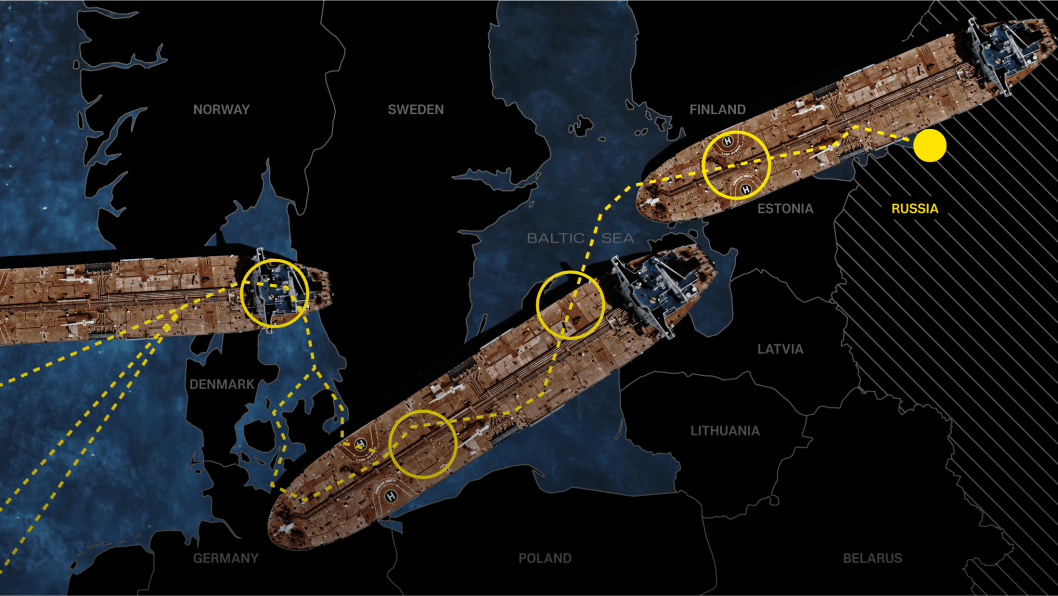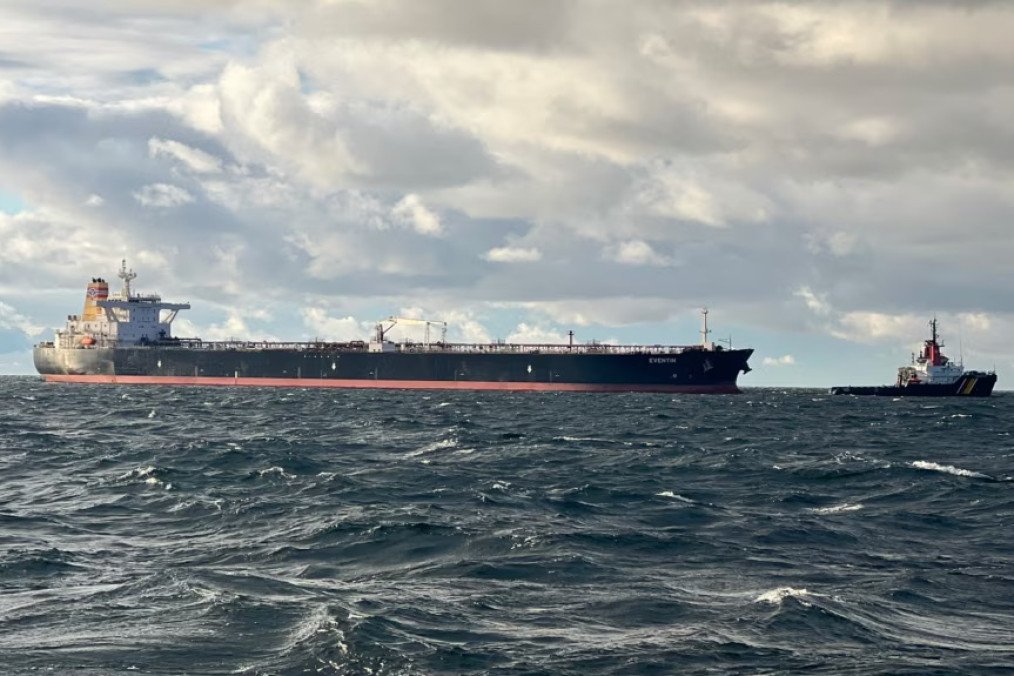A tanker from Russia’s shadow fleet, the Eventin, has been drifting in the Baltic Sea near the German island of Rügen after experiencing a power failure, leaving it unable to maneuver.
The tanker, which is carrying around 100,000 tons of oil, is currently being towed eastward by three tugboats for safety reasons, according to the DW. This action is intended to provide more space in case of unexpected developments.
#Eventin 99,000 tonnes of oil: Unmanoeuvrable shadow fleet tanker drifts off Rügen.
— Ships Of Legend (@ShipsOfLegend) January 10, 2025
10.01.2025
An unmanoeuvrable tanker is drifting in the Baltic Sea around 20 kilometres off Rügen. The ship is to be towed away due to the impending storm.
➡️https://t.co/ObbSLsEXZN… pic.twitter.com/EFj9UcrACG
The Eventin, registered under the Panama flag, had departed from the Russian port of Ust-Luga in the Leningrad region on January 6, en route to Port Said, Egypt. It began drifting on January 9 after the power failure, known as a blackout, which also left its navigation lights inactive.
The last known coordinates of the ship were transmitted in the morning of January 10. The ship’s cargo holds are reportedly sealed, and there have been no signs of oil spills or environmental contamination, as confirmed by maritime rescuers.

This tanker is linked to Russia’s shadow fleet, a group of vessels used by Moscow to circumvent oil export sanctions, as reported by the environmental group Greenpeace. While the owners of the ship remain unknown, its connection to this fleet raises concerns about the illicit transport of oil.
Efforts to secure the tanker have faced complications due to stormy weather, which has hampered the placement of the ship in its designated area. In response, additional vessels and experts have been brought in to ensure the safe distribution of the oil load between the tugboats. The operation, which involves moving the ship over a distance of 25 kilometers at a speed of 1-2 knots, is expected to take approximately eight hours.
Earlier, the Biden administration unveiled its toughest sanctions yet, targeting Russia’s energy sector. The new measures focus on oil producers, tankers, traders, and energy officials, including over 180 vessels linked to Russia’s shadow fleet. Treasury Secretary Janet Yellen stated that these actions aim to cut off funding for Russia’s war against Ukraine, intensifying economic pressures that have already led to inflation and a weakened ruble.



-72b63a4e0c8c475ad81fe3eed3f63729.jpeg)
-a083fcdedd4caa1998c9ea099b5016e2.jpg)



